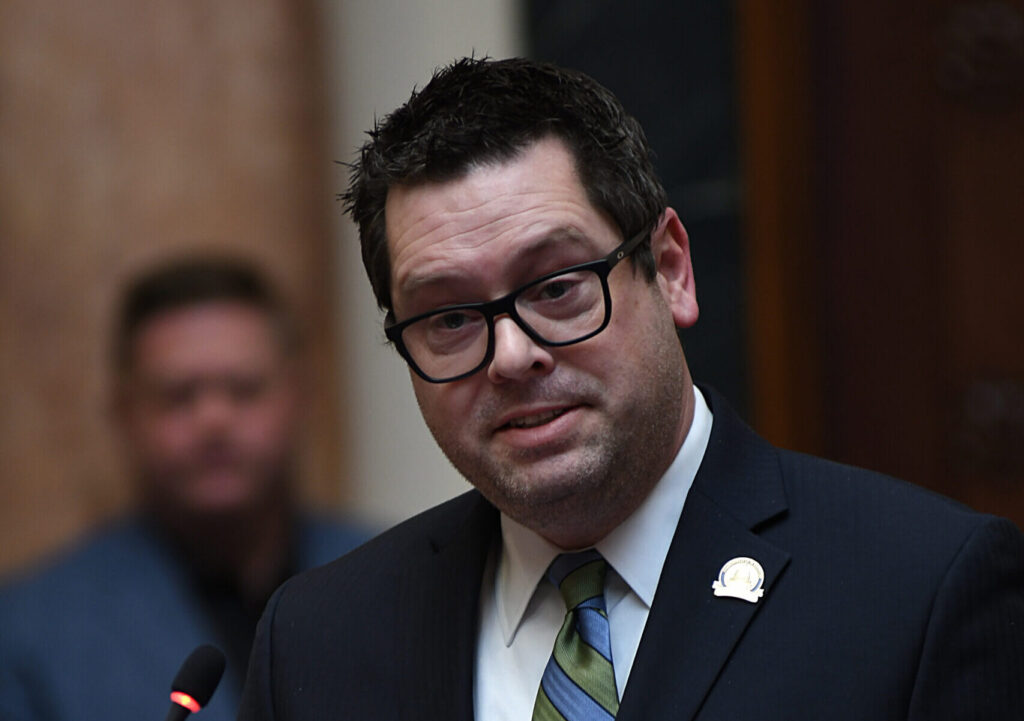A House bill that would change how Kentucky fills vacancies in U.S. Senate seats is moving in the Senate.

The Senate State and Local Government committee forwarded House Bill 622 in a vote of 10-1 Wednesday. Sponsored by House Republican Floor Leader Steven Rudy, of Paducah, the bill would end the governor’s power to fill U.S. Senate vacancies.
Rudy filed the bill shortly before Republican U.S. Senate Leader Mitch McConnell, Kentucky’s senior senator, announced he plans to step down from the role later this year. However, Rudy has denied that he was aware of McConnell’s plans. He says his bill is more in line with the 17th Amendment to the U.S. Constitution than Kentucky’s current process. That amendment establishes that voters can choose U.S. senators.
- SUBSCRIBE: Sign up for our newsletters
Rudy became interested in the topic following Illinois’ replacement for then-Sen. Barack Obama, who ascended to the presidency during his term. The state’s former governor was criminally convicted by a federal jury for putting the seat “up for sale.”
“‘When vacancies happen in the representation of any State in the Senate, the executive authority of such State shall — shall — issue writs of election to fill such vacancy,’” Rudy told the Senate committee on Wednesday, quoting the Constitution. “That’s all this bill does.”
The General Assembly changed the process in 2021 with the blessing of McConnell, who is now 82. Republican Senate President Robert Stivers, of Manchester, sponsored that law. It requires sitting governors to choose Senate appointees from the same political party as the person vacating the seat. The appointee comes from recommendations from the appropriate party’s executive committee.
Stivers has said he is open to discussions about changing the vacancy process.
Democratic Gov. Andy Beshear has been critical of Rudy’s legislation, saying it takes away a gubernatorial power from him that other recent governors of both parties have had. Beshear previously vetoed the 2021 legislation, but the Republican-controlled General Assembly overrode it.
“If we are just dominated by trying to create a result of what letter someone would have behind their name if appointed, then we are not performing or engaging in good government,” the governor said last month.
During the 2023 election, Daniel Cameron, Beshear’s Republican challenger and former attorney general, pressed Beshear to commit to naming a Republican to fill a Senate vacancy should one arise.
The bill sparked little debate among the committee. Louisville Democrat Sen. Cassie Chambers Armstrong was the lone vote against it. During the House vote, the bill received bipartisan support with only four Democratic representatives voting against the measure.
This article is republished under a Creative Commons license from Kentucky Lantern, which is part of States Newsroom, a network of news bureaus supported by grants and a coalition of donors as a 501c(3) public charity. Kentucky Lantern maintains editorial independence. Contact Editor Jamie Lucke for questions: info@kentuckylantern.com. Follow Kentucky Lantern on Facebook and Twitter.






